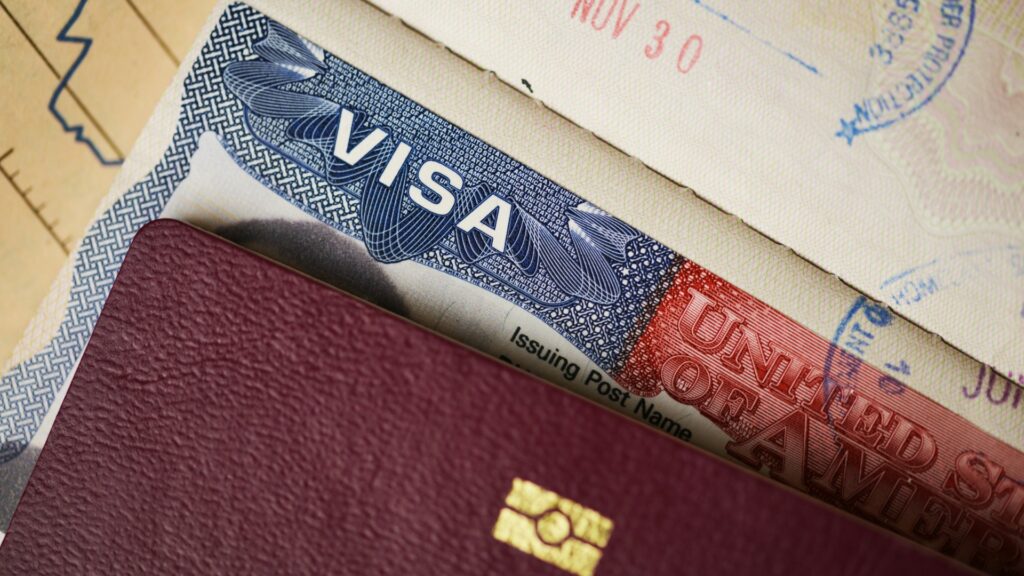United States Citizenship and Immigration Services (USCIS) clarified in December 2022 the factors in determining whether a foreign national would be deemed inadmissible to the United States based upon the likelihood of ever becoming a public charge (someone with “significant reliance on the government for support”).
The new guidance became effective on December 23, 2022.
The public charge rule applies to all applicants for admission to the U.S. or adjustment of status, with limited exceptions. Questions on public charge are integrated into the I-485 Application for Adjustment of Status which must be answered by each applicant filing the I-485.
Below are some frequently asked questions related to the Public Charge Rule and the Form I-485.
Who is considered a member of the applicant’s household?
A household includes:
- The foreign national applicant;
- The applicant’s spouse, parents, unmarried siblings under 21 years of age, and children, if physically residing with the applicant;
- Any other individuals who are listed as dependents on the applicant’s federal income tax return; and
- Any other individuals who list the applicant as a dependent on their federal income tax return.
How should household income be calculated?
Applicants should calculate an estimate of their household’s total annual income (see above regarding who is considered part of the household). USCIS does not limit the consideration of income only to income that appears on federal tax forms. USCIS considers all evidence of income from lawful sources for public charge purposes. Examples of income that may not appear on tax forms include child support, alimony, and Social Security income.
In some instances, this listed income may include income that has resulted from unauthorized employment. Whether a member of the noncitizen’s household engaged in unlawful employment, and any immigration consequences flowing from such unauthorized employment, is a separate determination from the public charge inadmissibility determination.
What is considered an asset?
Examples of assets to include in a calculation are savings accounts, stocks, bonds, certificates of deposit and real estate equity.
What is considered a liability?
Examples of liabilities to consider in a calculation are mortgages or lease payments; car loans; school loans; child support or alimony; and credit card debt.
Which public benefits does USCIS consider when determining if an applicant is inadmissible under the public charge ground?
USCIS will consider an applicant’s past, current or future receipt of public cash assistance for income maintenance, which includes:
- Supplemental Security Income (SSI);
- Cash assistance under the Temporary Assistance for Needy Families (TANF) program; and
- State and local cash assistance programs that provide benefits for income maintenance (often called “General Assistance” programs)
USCIS will also consider institutionalization for long-term care at government expense, such as in a nursing home or mental health institution.
The applicant has received or is currently receiving the above-mentioned public benefits. Are they automatically inadmissible as a public charge?
No. Current or past receipt does not, alone, render an applicant inadmissible as a public charge, but is rather just one of the factors that must be considered among all the circumstances.
Which public benefits will USCIS not consider when determining public charge inadmissibility?
USCIS will not consider noncash benefits, with the exception of institutionalization for long-term care at government expense.
Noncash benefits such as Medicaid and other healthcare programs, nutrition programs (like SNAP), housing benefits, unemployment, childcare services and others are not considered in determining public charge inadmissibility.
Additionally, any COVID-19 related public benefits will also not be considered (stimulus payments, unemployment, tax credits, student loan forbearance, etc.).
Who is exempt from public charge inadmissibility?
Certain groups of people are exempt from public charge inadmissibility. These include those seeking refugee or asylee status; those seeking T or U nonimmigrant status; applicants seeking Temporary Protected Status (TPS); Special Immigrant Juveniles; applicants seeking registry; applicants under the Cuban Adjustment Act; and self-petitioners under the Violence Against Women Act (VAWA) among others.

